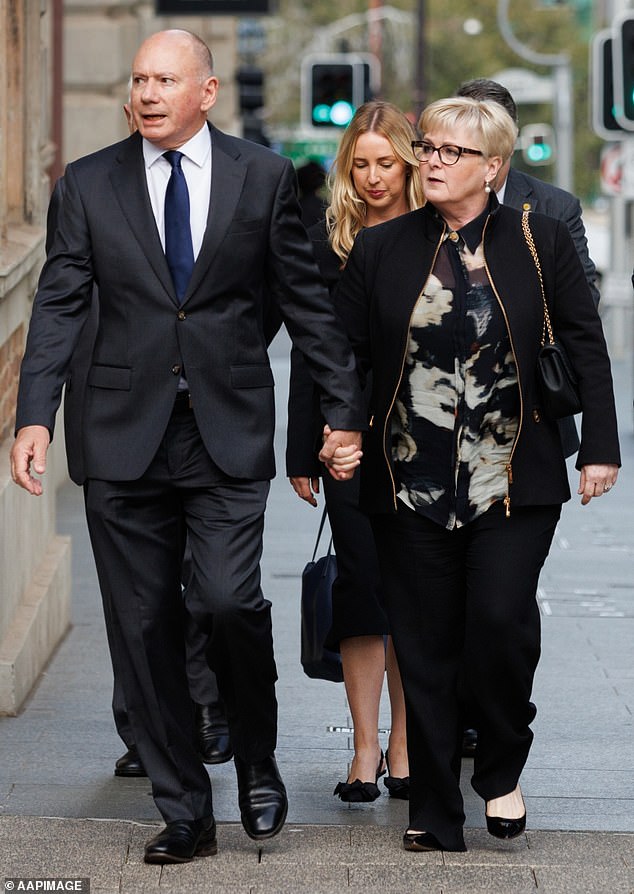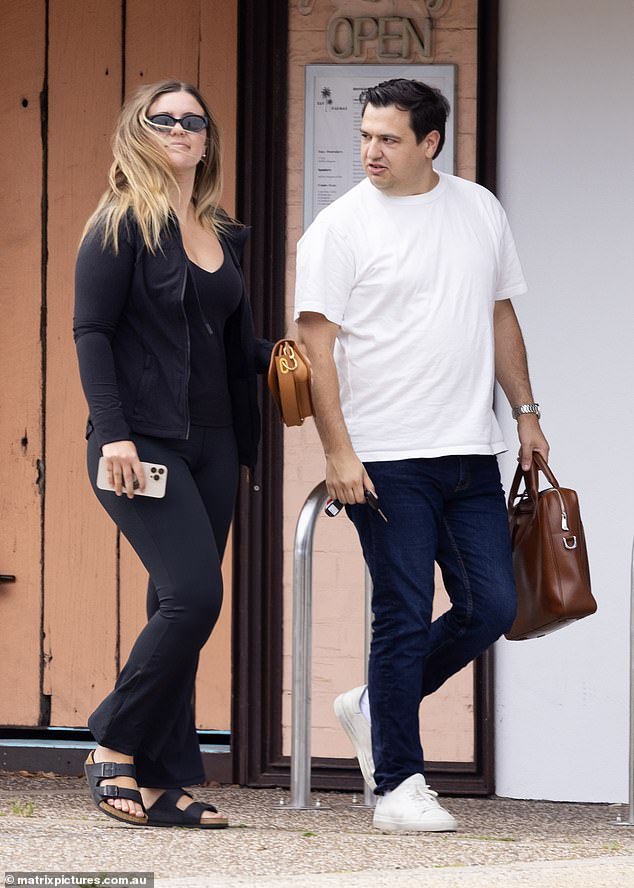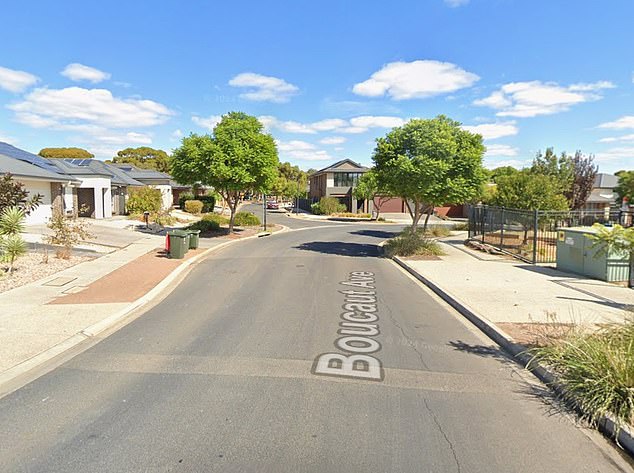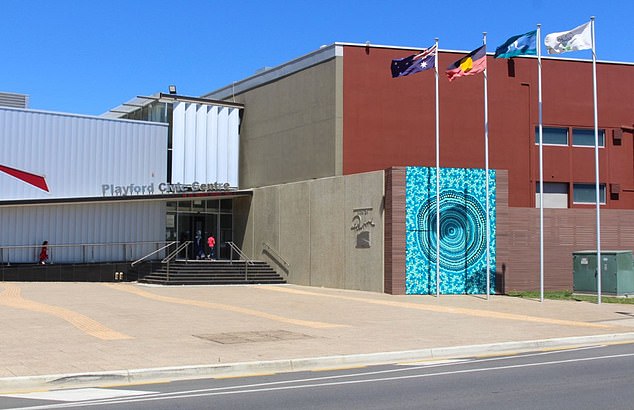When it comes to the bitter art of winning in court but emerging a de facto loser due to the personal financial cost, few names spring to mind faster these days than Linda Reynolds.
The former defence minister famously took her former staffer Brittany Higgins and Higgins’s husband David Sharaz to court over defamatory tweets.
She won and cleared her name – yet Reynolds may walk away with little more than a moral victory for her troubles due to the exorbitant cost of it all and the fact Sharaz is in the midst of bankruptcy proceedings, and Higgins could soon be.
On one level, I admire her determination to clear her name, whatever the cost. But she has no doubt paid a steep price for vindication.
This sorry saga got me thinking more generally about the absurdity of the Australian legal system when I saw another case we reported last week – where someone could ‘win’ a fight over a $107 parking fine and still walk away more than $46,000 out of pocket.
You see, that’s what happened to one Ms Mathie in South Australia, after a four-year saga that wound its way from a magistrates’ court to the Court of Appeal, attracted the attention of the state’s Attorney-General, and ended with the council quietly withdrawing the charge. You can read all about it here.
On paper, she prevailed. In reality, most ordinary Aussies would regard it as a major loss, considering the time and cost of seeking justice.
Her story is a neat illustration of a much bigger problem. Whenever the little person takes on government or big corporations in court, the odds are invariably stacked against them in ways that go well beyond the strength of their case.

Linda Reynolds (right) is far from the only recent example of someone who has ‘won’ in an Australian court only to emerge a de facto loser due to the personal financial cost

The former defence minister (far left) famously took her former staffer Brittany Higgins (second from left) and Higgins’s husband David Sharaz to court over defamatory tweets

She cleared her name – yet Reynolds may walk away with only a moral victory for her troubles. Sharaz (right) is in the midst of bankruptcy proceedings, and Higgins (left) could soon be
Even when they are in the right – even when they ‘win’ – the system makes sure they bleed.
The brutal truth in civil courts is this: at best, a successful party gets back perhaps 60 or 70 per cent of their legal costs. It is extremely rare for full costs to be awarded.
And that’s on a good day, with a sympathetic judge and a clear-cut victory.
The remaining 30-40 per cent – which can easily run into tens of thousands of dollars, if not much more – comes straight out of the winner’s pocket.
For someone on an average income, that is life-changing money. For a local council, a government department or a big company, it is a rounding error.
That is why the big end of town is so litigious – those making the decisions to head to court are spending other people’s money.
If they lose, of course, the position of the little person is truly dire.
They not only pay their own lawyer, but a significant portion of the other side’s bill too. Unless you’re wealthy, that can be a shock. And big players tend to spend far more on legal fees than any individual could sensibly afford, precisely because they can.

This sorry saga got me thinking more generally about the Australian legal system – one where someone could ‘win’ a fight over a $107 parking fine and still walk away more than $46,000 out of pocket. Recently, a driver argued that Playford Council, in northern Adelaide, had falsely charged her with double parking after she became stuck in heavy traffic on Boucaut Avenue, Blakeview (seen here). She won her case – but at a heavy cost

Playford Council is now worried about the implications of the parking fine incident
They brief senior counsel, throw hours of solicitor time at the matter, commission expert reports. When a court later decides how much of those costs the loser should pay, the number can be staggering.
Often the size of the spend by the big end of town is deliberate: to maximise their chance of winning, of course, but also to tee up a bill for their opponents designed to break them.
Layered on top of that is the uncertainty that is inherent in any court case. Judges get things wrong. Borderline issues can go either way. Technicalities suddenly appear out of nowhere. People lie under oath and get believed.
The system is far from an exact science. The appeals process exists to correct miscarriages of justice, but each rung up the judicial ladder becomes more expensive.
Most don’t bother appealing decisions that might have been wrong because they calculate that even an appeal court win won’t see them recover all their costs, and the risks of losing again are too great.
Given how often lower courts make mistakes that higher courts overturn, it is sobering to think how many incorrect judgements remain unchallenged simply due to the prohibitive cost of appealing.
A point of principle may be vindicated in a superior court two or three years down the track – but by then the legal costs have outstripped the original dispute many times over. The little person is paying not just for their day in court, but for the privilege of climbing a system designed by and for professionals – to be (mis)used by governments and big corporates playing with other people’s money.
In the Mathie matter, the Playford Council pursued the case all the way to the Court of Appeal, and the Attorney-General of South Australia joined in to support them. This was never about a single parking ticket, we were told, but about ‘the integrity of the expiation system’.
In other words, it was worth spending many multiples of the original fine because the money wasn’t coming out of the pockets of those making the decision. Taxpayers funded the fight. When they lose, they socialise the cost. When they win, they entrench the imbalance.
This is the quiet scandal of access to justice in Australia that doesn’t get enough attention. We talk endlessly about the rule of law and equality before the law, and we love the image of the scales of justice: blindfolded, balanced, impartial. Yet in civil courts, those scales are heavily weighted by who can afford the fight.
It’s not just about hiring better lawyers – although that matters. It is about who can absorb risk, who can carry a loss, who can treat litigation as a strategic tool rather than an existential threat. In short, the legal system too often rewards the bully.
It is no accident that large corporations and governments will sometimes go to court even when they know they may not win. They do it because they can. It might deter others. It might clarify a point of law in their favour. It might simply send a message that they will not back down, encouraging future complainants to settle or walk away.
When the money at stake is someone else’s – shareholders, taxpayers, ratepayers – rolling the dice on a legal strategy is much easier. The worst-case scenario is a write-down in a budget line. For the ordinary person on the other side, the worst-case scenario is losing their savings, their house, or their sanity.
Against that backdrop, I find myself wondering what advice Ms Mathie got along the way. Did she have lawyers from the outset? Was she properly warned about the potential cost exposure even if she ultimately succeeded? Did anyone spell out that a partial win could still be financially ruinous?
I’ve heard of too many examples where lawyers don’t have their clients’ interests at heart and don’t warn them about these sort of consequences.
The courts have acknowledged that Ms Mathie was disadvantaged because she was unrepresented at one stage. But that in itself is part of the problem: many people represent themselves precisely because they cannot afford lawyers, or they run out of money partway through. The system is fiendishly complex, and those without legal training are punished for not knowing how to navigate it.
The rational lesson for ordinary Australians is as depressing as it is clear: If you are hit with a fine, or a threatened claim, or a heavy-handed letter from a government agency or corporate legal department, the safest response is often to take your medicine. Pay the fine, accept the black mark, sign the settlement, move on.
Not because you are wrong, but because the cost of proving you are right is prohibitive and the risks of losing are catastrophic.
Justice becomes a luxury good, available to those who can afford it, while everyone else learns to roll over before they even reach the courtroom door. I know of wealthy people who can afford legal costs but, having experienced the system firsthand, won’t do it again, especially when going up against corporates or governments.
Can this broken system be fixed? In theory, yes.
Governments could change the rules so that when an individual takes on the state or a major corporation and wins, they are fully indemnified for their reasonable costs, not just a proportion.
We could cap the ability of public bodies to recover costs from private citizens except in truly vexatious cases.
We could create a public fund for test cases of genuine public importance, so that the burden is spread across society rather than borne by whichever unlucky person happened to be issued with the flawed ticket or unfair notice.
There are models overseas for legal insurance that soften the blow of adverse costs.
A radical idea in civil cases would be to allow lie detectors to be used on those giving evidence. The technology isn’t perfect, of course, but I for one would trust it above some out-of-touch judge making a call on who is a reliable witness and who isn’t.
But each of those ideas comes with complications and trade-offs. Someone still has to pay. More litigation might be encouraged. Governments are hardly eager to give up cost powers they routinely use, and often rely on the mere threat of, to coerce compliance.
Politicians who already intervene in almost every other aspect of our lives have shown remarkably little appetite to tackle this most basic barrier to justice.
Perhaps that is because the current system works well for institutions and badly for individuals? And it is institutions, not individuals, that have the ear of government.
What is undeniable is the effect all this has on public trust. People are not imagining that the deck is stacked against them – they know it is. Many have their own stories, or those of friends and family, where the cost of fighting city hall or a corporate giant proved too high, or where a technical victory still felt like defeat once the bills were paid.
No wonder confidence in institutions is eroding. It is hard to believe in the fairness of a system that tells you, in effect, that exercising your rights is financially reckless.
The parking fine that cost one woman more than $46,000 should not be treated as a quirky legal curiosity. It’s a window into a justice system that is formally equal but functionally skewed.
Until our political leaders are willing to confront that imbalance, to change the incentives that let powerful players litigate with money to burn while ordinary Australians are warned off the courts entirely, we will continue to tell people that they are equal before the law while designing a system that punishes them for believing it.
